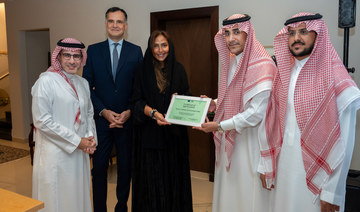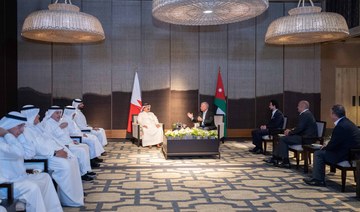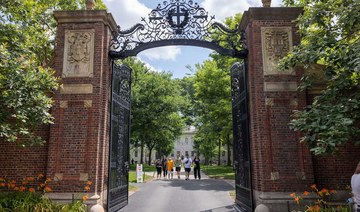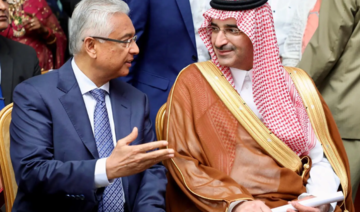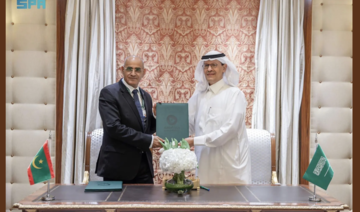CAIRO: Soaring prices have reportedly affected lantern sales in Egypt as Ramadan approaches, but traders are hopeful business will pick up and that buyers will return to the market.
Faraj Al-Gamal, a lantern merchant in Cairo, said although prices had increased this year, there were still buyers seeking the product.
“In the market now, lanterns are starting from EGP50 ($1.60), but some reach up to EGP3,000, depending on the type, size and design,” he told Arab News.
But Hanan Abdelmonem, a 30-year-old resident of Mansoura, north of Cairo, told Arab News: “It has become difficult to buy lanterns this year as they are now only affordable for wealthy families.”
“Last year, I liked a lantern (on Facebook) and asked about its price, finding it to be EGP450. I thought it was expensive and decided against it.
“This year, in 2024, I inquired about the same lantern and was told the price was EGP900. The seller confirmed it was not a joke.
Abdelmonem added: “I chose not to buy the same lantern, possibly because it resembles a star more than a lantern. When I inquired about regular lanterns, he quoted EGP3,200 for them.”
She said some merchants importing goods from abroad were raising prices but this should not be the case for lanterns.
“The lanterns are made in Egyptian factories with Egyptian materials and by Egyptian hands. Why then this price increase?” Abdelmonem said.
But Cairo merchant Faraj Al-Gamal told Arab News: “It’s wrong to say that Ramadan lanterns have become exclusive to the wealthy class. They are for all classes.
“We make lanterns for all classes. The poor who want a lantern will find one with us, and the rich have their lanterns, too. What matters is the joy of children with the lanterns.
“It’s natural that prices were a bit higher this year, having increased by about 20 percent, but they are still within reach for all classes.”
He added: “Ramadan lanterns made of tent fabric range from EGP50 to EGP200 depending on the size. There are also Chinese lanterns that play Ramadan songs, with prices ranging between EGP120 and EGP200.
“There are plastic illuminated lanterns priced between EGP10 and EGP145, while wooden lanterns range from EGP90 to EGP300, depending on the size.”
He said that small- and medium-sized metal Ramadan lanterns cost between EGP130 and EGP250, while large ones made from metal or brass trade for between EGP550 and EGP3,000.
Al-Gamal said lanterns in new designs have been introduced this year by manufacturers.
This year’s latest trend is the introduction of lanterns made of crystal and acrylic, with prices ranging from EGP200 to EGP390.
Barakat Safa, head of the toys and gifts division at the Cairo Chamber of Commerce, told Arab News: “The price increase is not only due to the rising cost of goods and the foreign currency crisis.”
Safa explained that the shortage of lanterns was due to a gradual decline in production that began during Ramadan 2022. The factories were impacted by rising production costs, especially for imported supplies.
These costs were further exacerbated by the Russia-Ukraine war and increasing inflation.
Safa said: “In Ramadan 2023 and 2024, Egyptian lantern traders and manufacturers faced losses due to decreased purchasing activities caused by inflation, leading to lower interest in lanterns.”
Safa said 60 to 70 percent of manufacturers skipped production this year and used the previous year’s stock to avoid losses.







